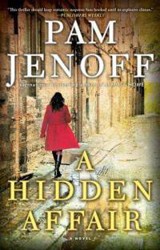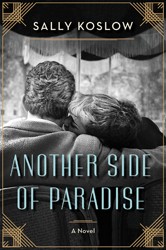Alan Cheuse’s Prayers for the Living is a family drama told by omniscient narrator and grandmother Minnie Bloch, whose family’s story is filled with tragedy and unfulfilled dreams. While her family struggles, she is thankful for her own life and knows that things could always be worse, and Minnie’s Yiddish-infused language and mentality add lightheartedness to her family’s situation. Her son Manny’s American Dream of trying to become a successful rabbi is a mode of repentance for his father’s secularism, which is believed to have gotten his father killed. Manny’s father’s death was a life-changing moment for both Minnie and Manny, and throughout many events in the novel, images of the father’s death — particularly a six-pointed star of glass from a broken bottle — appear as reminders of how fragile life is amidst the struggle to be successful as American immigrants.
After grappling with Manny’s wife Maby’s alcoholism, which is partly caused by her troubling long-buried secrets, Manny begins an affair with a Holocaust survivor at a time when Maby and their daughter Sarah need his love and support the most. Since the novel is narrated by Minnie, Manny’s affair — as well as other private moments that other characters’ experience — is often stoically brushed over to focus on the damage that such events are most likely creating for the family. Manny seems to want to help his family at times, but he doesn’t put as much effort into being a good father and husband as he does to his side business, which ends up causing more trouble for him than he ever imagined. Minnie reveals the spiraling downward fall of her family’s happiness, as Sarah’s situation in college seems to include horrors similar to what her mother Maby endured during her youth.
Minnie is able to tell the individual stories of her family by listening in on their conversations, reading letters or diaries, and her maternal sense of simply knowing what is going on, but the reader is often left wondering whether or not to trust Minnie’s perspective. Prayers for the Living is basically Minnie’s extensive monologue: while she shares her story with her grandmotherly friends, she rarely pauses to allow them a chance to ask a question or share their own story, giving her a sense of selfish entitlement. At the same time, however, Minnie is a very lovable Jewish grandmother who often repeats herself to make her point and to show her close observation and concern for her family. By choosing Minnie to be an omniscient narrator, Cheuse privileges readers with an objective understanding of his characters’ struggles (as objective as any grandmother can be) and empathy for the sensitivity of the characters’ search for lifelong fulfillment. The story of Minnie, Manny, Maby, and Sarah is one mixed with humor and hardship, a curious Jewish American immigrant family and how they individually deal with tragedy.
Related content:
- Fiction reading list of Classic Jewish Literatures
- Keeping It in the Family
- Mother’s Day Reading List
Jamie Wendt is the author of the poetry collection Laughing in Yiddish (Broadstone Books, 2025), which was a finalist for the 2022 Philip Levine Prize in Poetry. Her first book, Fruit of the Earth (Main Street Rag, 2018), won the 2019 National Federation of Press Women Book Award in Poetry. Her poems and essays have been published in various literary journals and anthologies, including Feminine Rising, Catamaran, Lilith, Jet Fuel Review, the Forward, Minyan Magazine, and others. She contributes book reviews to the Jewish Book Council. She won third prize in the 2024 Reuben Rose Poetry Competition and won second prize for the 2024 Holloway Free Verse Award through the Illinois State Poetry Society. Wendt holds an MFA in Creative Writing from the University of Nebraska Omaha. She lives in Chicago with her husband and two kids. Follow her online at https://jamie-wendt.com/ or on Instagram @jamiewendtpoet.





